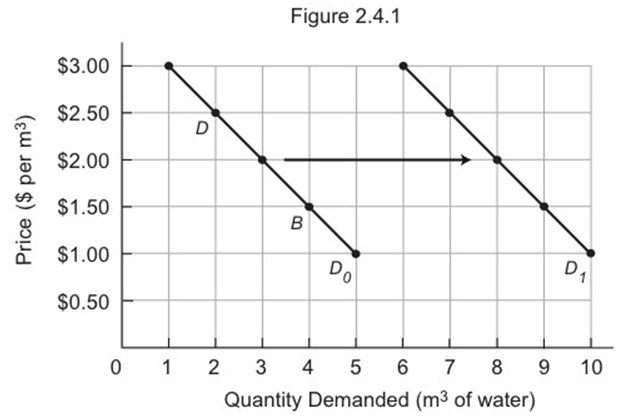Exam 2: Making Smart Choices: the Law of Demand
Exam 1: Whats in Economics for You Scarcity, Opportunity Cost, Trade, and Models215 Questions
Exam 2: Making Smart Choices: the Law of Demand159 Questions
Exam 3: Show Me the Money: the Law of Supply159 Questions
Exam 4: Coordinating Smart Choices: Demand and Supply226 Questions
Exam 5: Are Your Smart Choices Smart for All Macroeconomics and Microeconomics185 Questions
Exam 6: Up Around the Circular Flow: Gdp, Economic Growth, and Business Cycles277 Questions
Exam 7: Costs of Not Working and Living: Unemployment and Inflation255 Questions
Exam 8: Skating to Where the Puck Is Going: Aggregate Supply and Aggregate Demand304 Questions
Exam 9: Money Is for Lunatics: Demanders and Suppliers of Money227 Questions
Exam 10: Trading Dollars for Dollars Exchange Rates and Payments With the Rest of the World245 Questions
Exam 11: Steering Blindly Monetary Policy and the Bank of Canada217 Questions
Exam 12: Spending Others Money: Fiscal Policy, Deficits, and National Debt237 Questions
Exam 13: Are Sweatshops All Bad Globalization and Trade Policy205 Questions
Select questions type
Your preferences can be affected by advertising.
Free
(True/False)
4.7/5  (34)
(34)
Correct Answer:
True
Turnips are an inferior good. If nothing else changes, a rise in the price of turnips causes
Free
(Multiple Choice)
4.9/5  (34)
(34)
Correct Answer:
E
 Figure 2.4.1.
-Look at Figure 2.4.1. An increase in demand is
Figure 2.4.1.
-Look at Figure 2.4.1. An increase in demand is
Free
(Multiple Choice)
4.9/5  (31)
(31)
Correct Answer:
A
Consumers economize on products and services that become more expensive by switching to substitutes.
(True/False)
4.8/5  (42)
(42)
You are generally willing to pay more for a product or service that has no close substitutes.
(True/False)
4.9/5  (36)
(36)
The economist's distinction between quantity demanded and demand is an attempt to copy a controlled experiment.
(True/False)
4.8/5  (33)
(33)
The law of demand works as long as nothing else besides the price of the product changes.
(True/False)
4.8/5  (39)
(39)
When income increases, the quantity demanded of normal goods increases.
(True/False)
4.8/5  (38)
(38)
Because drivers expect the price on Saturdays will be higher, they increase the quantity demanded of gasoline on Fridays.
(True/False)
4.8/5  (42)
(42)
The high price of diamonds relative to the price of water is due to the fact that
(Multiple Choice)
4.9/5  (26)
(26)
If you feel strongly about protecting the environment, this affects your demand for cars and your demand for public transit.
(True/False)
4.9/5  (46)
(46)
Products or services that are essential to survival always have low marginal benefits.
(True/False)
4.8/5  (29)
(29)
Willingness to pay depends on total benefit, not marginal benefit.
(True/False)
4.9/5  (35)
(35)
A phone provider who offers lower prices per minute to customers who use a lot of minutes is violating the law of demand.
(True/False)
4.9/5  (44)
(44)
Willingness to pay depends on marginal benefit, not total benefit.
(True/False)
4.8/5  (28)
(28)
Gina and George had a cash bar at their party last week. At $2 a ticket, the 50 people at their party bought 2,000 tickets. Market demand at Gina and George's party was
(Multiple Choice)
4.8/5  (32)
(32)
Showing 1 - 20 of 159
Filters
- Essay(0)
- Multiple Choice(0)
- Short Answer(0)
- True False(0)
- Matching(0)